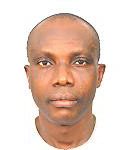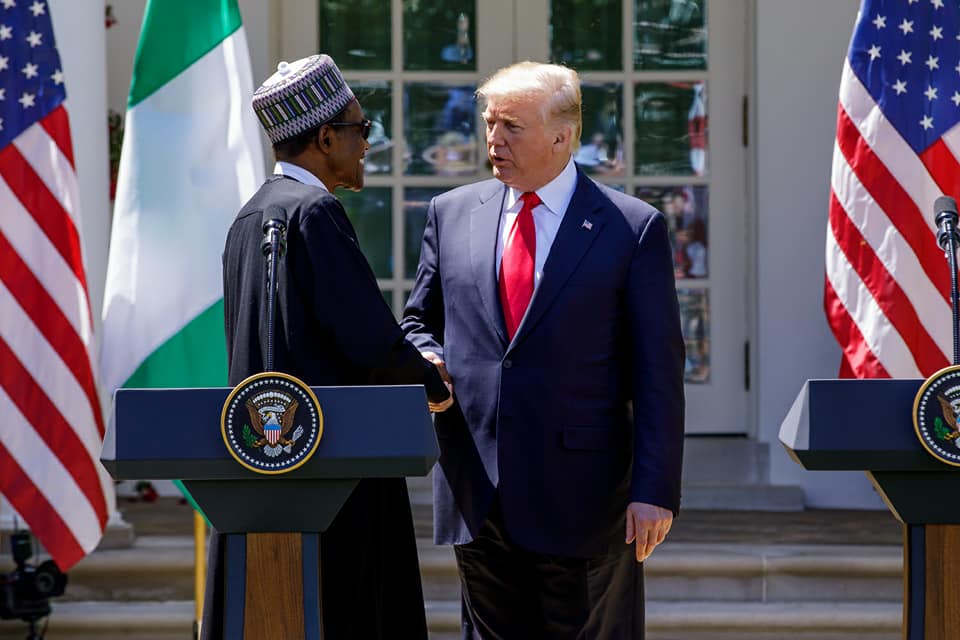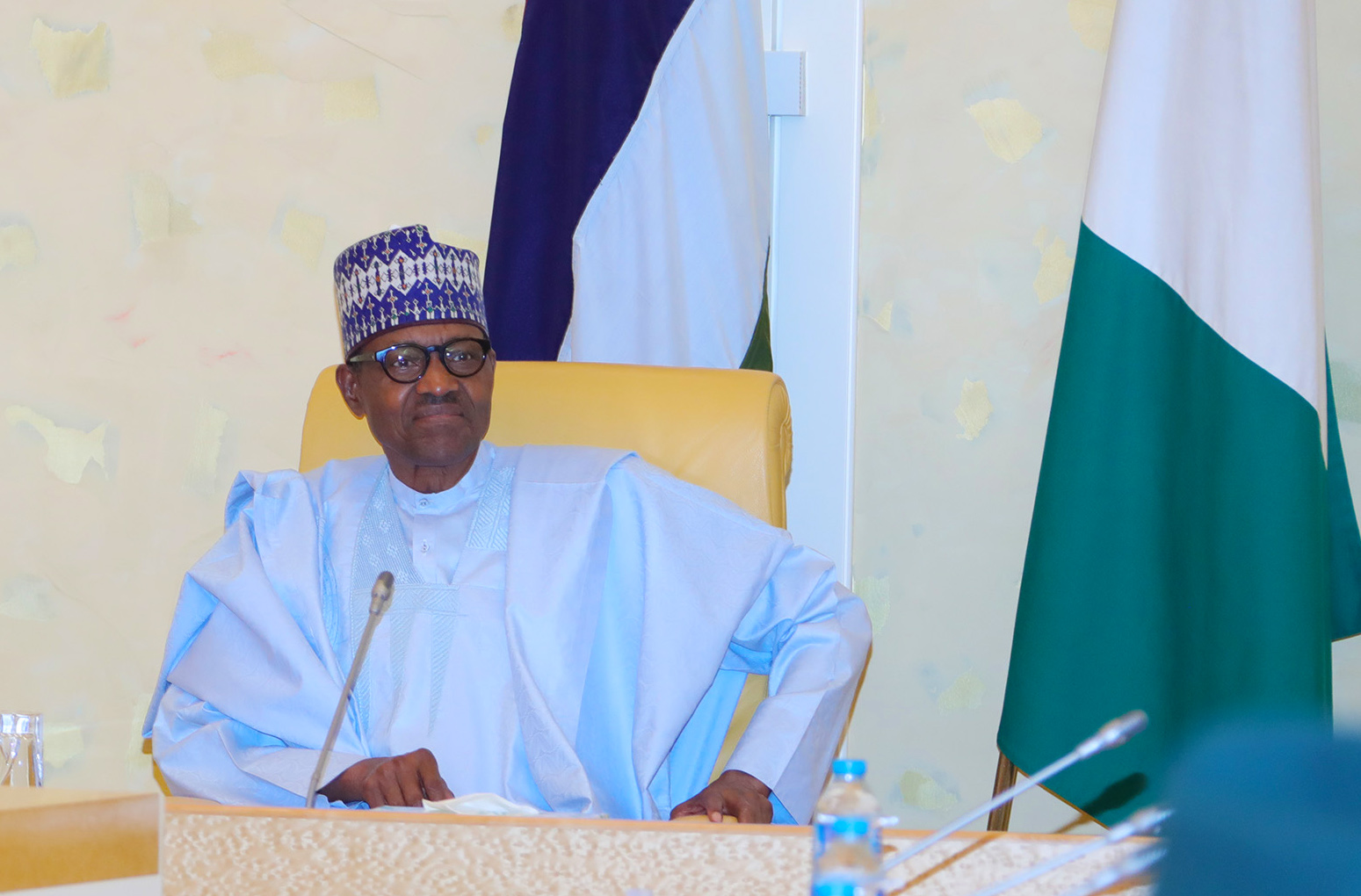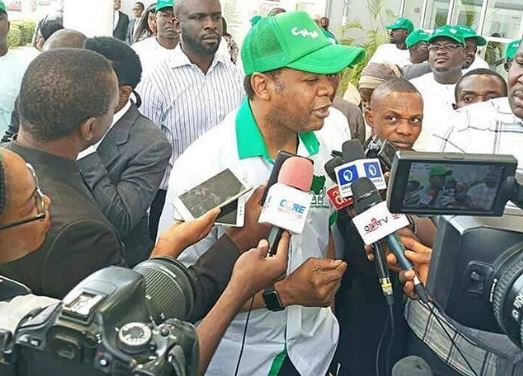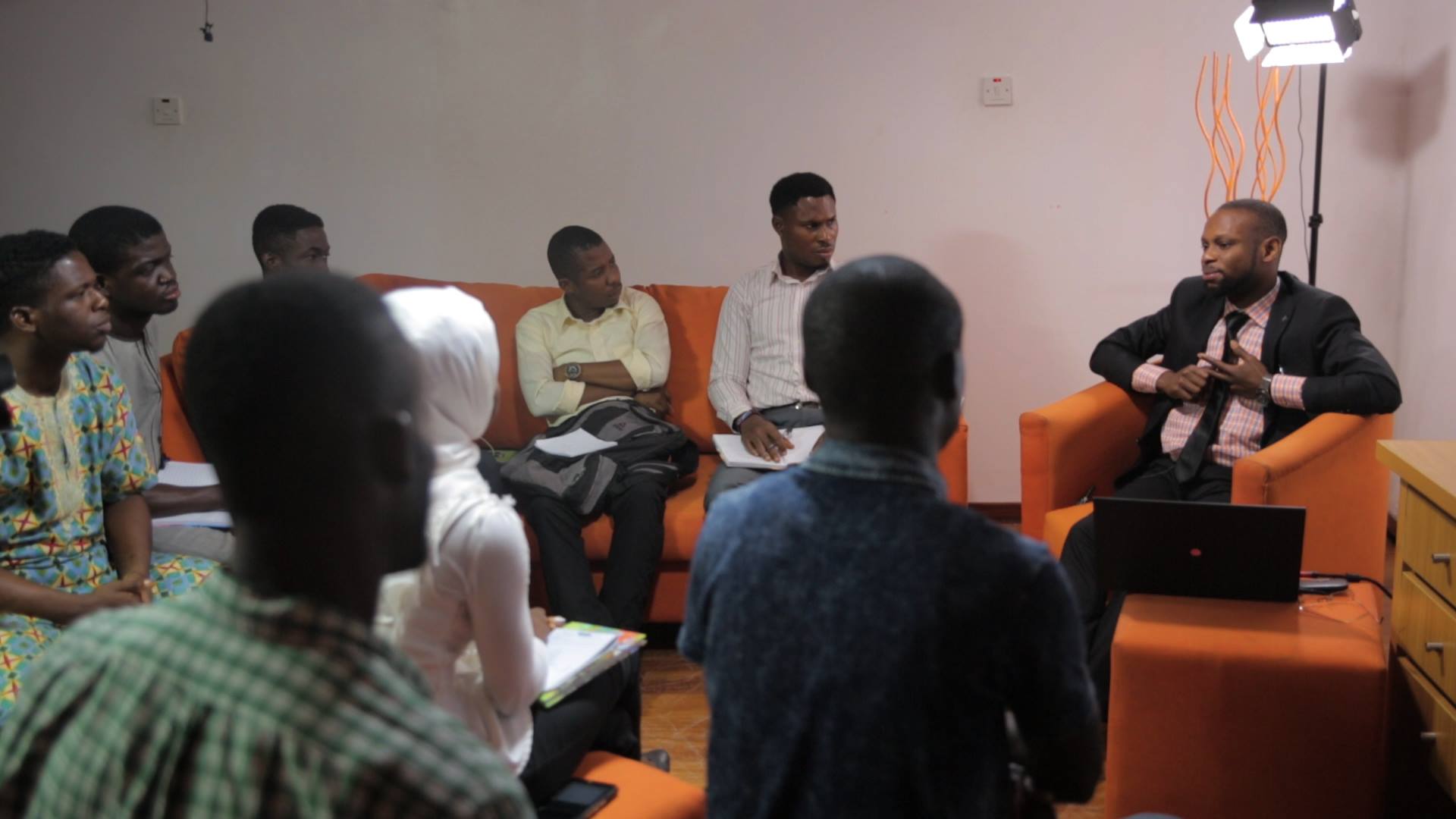By established reputation that he has done deliberately little to repudiate, President Donald Trump is renown for carrying himself with the ultimate supercilious swagger. In his own eyes, he is the centre of God’s universe around which all other existences must gravitate or otherwise fall off into ignoble oblivion. Actually, as it seems, they pass or fail the test of qualification for survival on his terms.
When he comes in contact with those other existences as is inevitable under heaven, he readily throws up pejorative labels for persons or groups against whom he runs in, or whose chemistry simply don’t jell with his own. Not that he has much challenge using those labels openly and with defiant sensationalism. But even where such labels occur Freudianly in private conversations, and later on get leaked to pose awkward public relations or diplomatic moments, he typically spares no time for trite niceties of retraction or other forms of remediation. He is The Donald phenomenon, of which there is no other creation faintly peer-matching, isn’t he?
The American leader has been openly accused of being racist and particularly hubristic towards non-Caucasians, and he hasn’t seemed scantly bothered by that impression. In his own country, for instance, he has been remarkably insular towards the deprivations of people on the Caribbean island of Puerto Rico, which by some alchemy of geo-politics happens to be a territory of the United States. Hurricane Maria struck on that island late last year and has left nearly 3,000 residents dead in its wake, going by the latest update on the ensuing toll. The mayor of Puerto Rican capital San Juan, Ms. Carmen Cruz, only last week accused Washington of responsibility for the huge toll, saying: “The Trump administration killed Puerto Ricans with neglect.” And to boot, he has kept his xenophobic bluster unflaggingly at historic levels.
The latest of the American leader’s hubristic slips was the report early last week that he allegedly confided in some aides that he never again wanted to meet “someone so lifeless” as President Muhammadu Buhari, apparently following from his hosting the Nigerian counterpart in Washington at the close of April, this year. The Financial Times (FT) published the report, citing “three people familiar with the matter” who were not named. The mention of President Buhari in the report was incidental, though, as FT was basically using the piece to tout a scheduled visit by Kenya’s President Uhuru Kenyatta to the White House last Monday as a fresh opportunity for Africa to wring some concessions out of Trump who has since coming to the American presidency in 2017 been without an agenda for the continent.
Advertisement
We must momentarily sidestep competing partisan capital that Buhari supporters on one hand, and opposition actors on the other have tried to milk from the FT report (we will shortly return to that issue) and try to unravel possible implications of the alleged utterance for Nigeria’s ties with the Trump presidency. But for a start, it would not do to live in denial that Mr. Trump was misreported. Chances are almost fool-proof that he was not. Even if we discountenance the reputed authority of the reporting medium, namely FT, the alleged statement is vintagely Trumpist, both in essence and by established pattern.
Apparently owing to the mutual diplomatese that tailed the April outing by visiting Mr. Buhari and host Mr. Trump in Washington, the Nigerian presidency addled last week on what to make of the new report. “I doubt the authenticity of the claim that the President of the USA said that. But if truly he said so, then it is of no significance to us. This is because the same Trump publicly endorsed and applauded the President for a job well done,” Information and Culture Minister Lai Mohammed was reported saying. Other officials of government who spoke on the matter tagged on that same narrative.
‘It is a shame that we readily submit our national sovereignty and identity to validation by spurious external standard bearers’
Advertisement
But let’s just face up to the uncomfortable truth: Trump most likely spoke as was reported. Of course, the hateful slur attributed to him was not the stuff of state policy pronouncements, and that should explain why he couldn’t have taken a press podium to air his gut’s dark workings betrayed by the alleged remark. To that end, it is instructive that neither he nor any American official has risen in swift denial of the FT report. Besides, that the newspaper didn’t identify its sources should not detract from its credibility, because the utterance in issue isn’t exactly the type intended for full-faced spokespersons to put in public domain.
Should anyone be blindsided by this pattern that is now so familiar anyway? Last January, Mr. Trump was reported to have called out African nations and the southern American states of Haiti and El Salvador as ‘shitholes’ at a meeting in the White House. When the story broke and even his own countrymen deplored the apparent racial bigotry, Trump’s camp only offered tepid prevarications that amounted essentially to no denial. Some four months later when Buhari visited Washington and journalists squared up with Trump at their joint press conference in the Rose Garden, he neither denied nor apologise for the disparaging remark. Rather, he dug in, saying: “The (Nigerian) president knows me and he knows where I’m coming from. And you do have some countries that are in very bad shape and very tough places to live in.”
But there’s the catch: President Buhari curiously indulged his host. Asked at that press conference about his reaction to Trump’s ‘shithole’ remark, the Nigerian leader parried the question, saying: “I’m not sure about, you know, the validity of whether that allegation against the president is true or not. So the best thing for me is to keep quiet.” Many people felt he missed a golden opportunity to – diplomatically, of course – chide President Trump for his bigotry, being the first African leader to have met the American counterpart in one-on-one encounter since the commencement of his (Trump’s) presidency and following soon after the controversial remark.
On the heels of that ‘shithole’ report, Nigeria was stridently mute over the affront whereas some other African countries voiced their outrage. Besides the umbrella African Union (AU) that said Trump’s statement “flies in the face of all accepted behavior and practice,” for instance, Botswana slammed the American leader as “reprehensible and racist,” saying it had summoned the U.S. ambassador to clarify whether Botswana was one of those countries being regarded as ‘shitholes.’ It could well be that Mr. Trump anticipated some fire along that line, among other things, at the April meeting; in which case his alleged ‘lifeless’ comment says little about reality check and more about his own cynical fancies that were short-fed by the encounter.
Advertisement
Now, back to politicians. It is a shame that we readily submit our national sovereignty and identity to validation by spurious external standard bearers simply for partisan motives. That is what cheerleaders of the Nigerian president and opposition critics on the sheer basis of Trump’s alleged latest comment have done. A bigger tragedy is that the whole build-up to Buhari’s Washington visit and official narratives thereafter as well signposted this mindset of seeking offshore validation.
But if Mr. Trump’s say-so were ever to be the ultimate benchmark, how do we explain his labelling legendary Watergate reporter Carl Bernstein, only last Wednesday, as a “sloppy” and “degenerate fool” who invented stories? That was Trump’s tweeted verdict on the ace journalist over a Bernstein story about his ex-lawyer Michael Cohen that he did not fancy. Bernstein fired back, of course, that he has spent his life bringing the truth to light and no “taunt” could diminish that commitment.
The point here is that we are what we are based on what we really are, for good or for bad, and not what an offshore validator says we are. If political actors seek validation or repudiation, that would come from the true impact of governance on the generality of Nigerians and the verdict of voters at the coming elections.
Please join me on kayodeidowu.blogspot.be for conversation.
Advertisement
Add a comment
